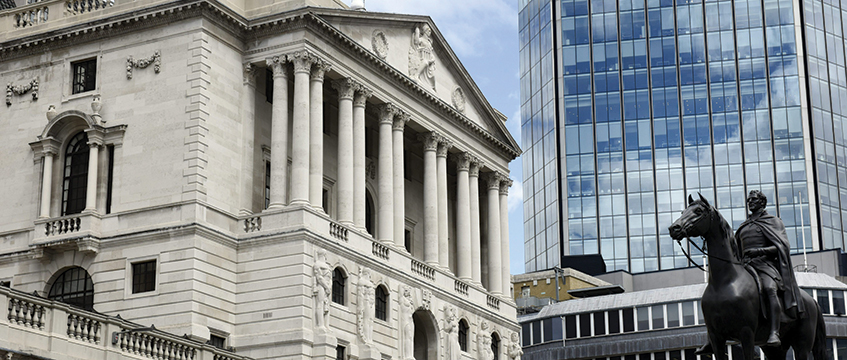Bank of England to explore climate change hit on property prices
The Bank of England is gearing up to stress-test financial intuitions for their ability to cope with climate change, with a focus on how environmental change could affect property prices.
In a discussion paper published today, the bank said it would explore the financial risks posed by climate change.
Its 2021 Biennial Exploratory Scenario will test the resilience of the current business models of the largest banks, insurers and the financial system to climate-related risks. It will report back on the scale of adjustment that will need to be undertaken in coming decades for the system to remain resilient.
The Bank of England is gearing up to stress-test financial intuitions for their ability to cope with climate change, with a focus on how environmental change could affect property prices.
In a discussion paper published today, the bank said it would explore the financial risks posed by climate change.
Its 2021 Biennial Exploratory Scenario will test the resilience of the current business models of the largest banks, insurers and the financial system to climate-related risks. It will report back on the scale of adjustment that will need to be undertaken in coming decades for the system to remain resilient.
The investigation will include a close look at residential and commercial property prices. The bank highlighted how increasing severity and frequency of climate and weather-related events are a risk for property and other infrastructure.
The report said: “This reduces asset values, results in lower profitability for companies, damages public finances, and increases the cost of settling underwriting losses for insurers.
“The physical risks from climate change are already affecting UK financial firms. For example, around 10% of the value of mortgage exposures in England is on properties in flood-risk zones.”
The report will consider how property prices will be affected by the costs of climate-related damage. “Household income and corporate profits metrics would be adjusted to reflect, for example, the cost of repairs to property and disruption to corporate supply chains.
“To quantify the impact of transition risks on household sector exposures, the BES would specify profiles for household income and residential property prices. These profiles would reflect the impact of consumer costs (such as from changes to energy, transport or food prices), and of upgrading the energy efficiency of properties.”
The bank decided to undertake the exploratory exercise following the publication of British financier Huw Van Steenis’s Future of Finance report in June. It recommended that the bank should start stress-testing financial institutions to see how robust they are in the face of environmental change.
Commenting on the report, Dan Grandage, head of ESG at Aberdeen Standard Investments, said: “We welcome the increased focus and scrutiny from the Bank of England as we start the transition to a low carbon economy. Ultimately, asset managers have a responsibility to their clients to consider the impact of climate change on investment value and the sooner that consideration starts the better. This involves gaining an intimate understanding of how each investment is exposed to material issues related to climate change, and what is required to tackle these challenges.
“We predict that we will start to see these issues being accounted for in fund cashflows and valuations in earnest. The market has been slow to genuinely account for ESG risks in valuations but we expect that in 2020 this will start to filter through. This has the potential to be transformational in terms of the assets we hold, how much we are willing to pay for them. Those that don’t start considering these risks now could find themselves holding the ‘carbon hot potato’ when market pricing catches up.”
The bank will consult relevant stakeholders on the exercise, including financial firms, climate scientists and economists.
Responses are requested by 18 March 2020.
To send feedback, e-mail anna.ward@egi.co.uk or tweet @annaroxelana or @estatesgazette











